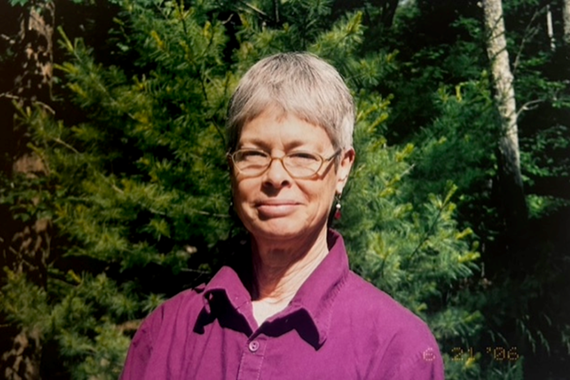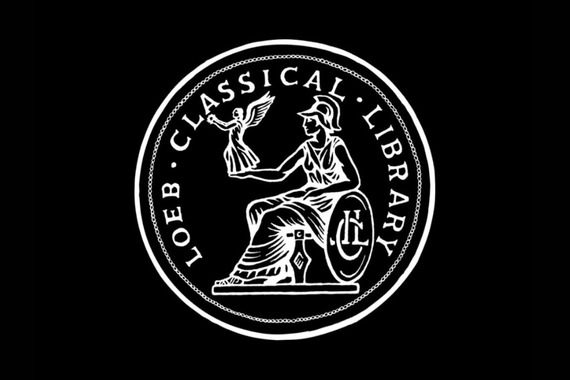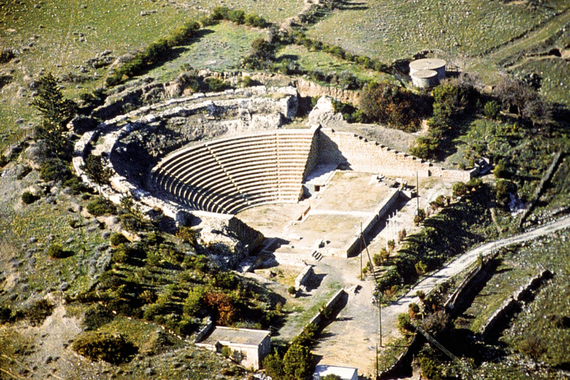Newsletter from the Department Chair
From the Department Chair:
Happy Spring to all you friends, students, and colleagues of the Department of Classical and Near Eastern Religions and Cultures! For those of you who don’t know me, I am Steve Ahearne-Kroll, the chair of the department. I joined the department in 2014, when I accepted the Sundet Family Chair in New Testament and Christian Studies. One of the things that drew me to this position was the possibilities of deep interdisciplinary study of the ancient world, and certainly my work and teaching has been greatly enriched since joining the department. Feel free to visit my web page to learn more about my teaching and research interests. I became chair of the department in the summer of 2021 after Peggy Nelson finished her year as interim chair.
So much has happened in the last three years, but I can only hit the highlights. First, those of you who are long time friends of the department will notice the new department name, which came about in 2020 during discussions concerning the future of the department. Given the makeup and expertise of the faculty at the time, we wanted a department name that best captured who we are. We feel that the new name honors the traditions of classical studies and the study of the Ancient Near East in the department, while also reflecting the work of many faculty who study ancient religion and culture. Name changes are difficult, but we came together as a department, and those discussions also laid a foundation of trust for other difficult conversations.
Second, we made some significant changes to our graduate programs. We made the difficult decision to indefinitely pause the PhD program in Classics. Given the size and configuration of the department, it became increasingly difficult to maintain the scope and depth of the Classics PhD program at the high level we had in the past. In the midst of the conversations regarding the future of Classics in the department, we began to reimagine our MA in Classics, culminating in a revised degree program that emphasizes exposure to a wide range of Latin and Greek texts at the advanced level. The courses also serve our Religions in Antiquity graduate students quite well, so win-win. We are currently at the end of our first year of the new MA in Classics and are happy with how it is working so far. In Spring 2022, we graduated our first student in our recently developed interdisciplinary PhD in Religions in Antiquity program. Kristofer Coffman was a wonderful presence in the department who wrote an innovative and interdisciplinary dissertation on interpreting parabolic language in the gospels within an ancient rural context. He is now Assistant Professor of New Testament at Luther Seminary in St. Paul.
Third, we completed a much-needed revision of our undergraduate major, culminating in a new major with language and non-language tracks. The language track includes Latin and Greek options, as we have always offered, but it also includes a Modern Hebrew option, which we hope will both attract new students to the department and help grow Modern Hebrew. The non-language track takes advantage of the diversity of departmental course offerings, spanning Classics, Near Eastern Studies, Biblical Studies, Greek Religion, Roman Religion, Jewish Studies, and Ancient Christianity. Students in this major take courses in each of three areas: State, Self, and Social Power; Literature and Intellectual History; and Religious Discourse, Authority, and Practice. The new major is just now becoming available to the university students.
Fourth, we just completed an exciting program called “The Future of the Past: Rethinking Legacies of Injustice in the Study of Antiquity”. In our last 3-year planning proposal, we requested funding to engage in a departmental conversation about our disciplines in light of the social injustices in academia that were becoming more apparent to us and the public. “The Future of the Past” brought in speakers representing the disciplines of our department to help us think through issues of injustice with the ultimate goal of becoming a more just and equitable department within the university and the larger academic community. (If you missed the series or some of its sessions, visit the website to request recordings.) On March 24th, department members met to brainstorm ideas about how we can move forward in light of our conversations. While the details are in development, the major projects ahead of us fall into three categories: Developing bridge programs for underrepresented undergraduate and graduate students; curriculum and professional development programs for faculty and graduate students; and the creation of Future of the Past Lab, which will be a public-facing entity that will include regular blogs and podcasts, outreach efforts, collaborative research projects with each other and with local scholars, and a consistent presence at professional society conferences.
Finally, we welcomed three new faculty members and a postdoctoral fellow. Charley McNamara joined us in 2021 as Lecturer and Director of Greek and Latin Instruction. Simone Oppen joined us as Assistant Professor (Classics) in 2022, and Ranjani Atur joined us as Assistant Professor (Religions in Antiquity) in 2022. Finally, Noah Segal joined us as Postdoctoral Fellow (Classics) in 2022 for two years, after which he will be Lecturer in the department. They all bring deep knowledge of their particular fields and a strong commitment to interdisciplinary scholarship and teaching, as well as a firm commitment to justice in the academy. We are thrilled to have them all in the department.
All signs point to a bright future for the department, as we emerge from the pandemic. While we still have a long way to go and much to learn about working together, we are committed to this ongoing learning process as we look to become a positive influence in the university and wider academic world. Please visit the CNRC website to learn more about our department and reach out to me to connect, reconnect, say hello, or make a donation. We would love to hear from you.
New Faculty Profiles:
Ranjani Atur: B.A. Classics, Georgetown University; M.A. Religious Studies, University of California, Santa Barbara; Ph.D. Ancient Mediterranean Religions, University of California, Santa Barbara.
My research centers on Ancient Greek religious experience, affect, and belief, particularly as mediated by sacred objects (e.g. statues of gods) and sacred spaces. I am particularly interested in how Greek religion and its use of materiality participate in a broader discourse among the many polytheistic and imagistic religious traditions throughout the ancient Mediterranean and Eurasian region. I am also interested in the interactions between Greek religion and Early Christianity, as well as the development of early Christianity within the spatial and material context of Greek and Roman religions.
Charles McNamara: A.B. Classics, Harvard College; Ph.D. Classics, Columbia University.
I am a classicist who studies the rhetorical tradition, intellectual history, and ancient philosophy. He holds an A.B. from Harvard College and a Ph.D. from Columbia University. I co-edited Quasi Labor Intus: Ambiguity in Latin Literature, an academic volume published in honor of the renowned Latinist Reginald Foster. After completing his Ph.D., I was a National Endowment for the Humanities fellow at the Bayerische Akademie der Wissenschaften in Munich, where I trained as a Latin lexicographer for the Thesaurus Linguae Latinae. Before coming to the University of Minnesota, I was the Robert Belknap Core Faculty Fellow in the Department of Classics at Columbia University, where I was a long-time affiliate of the Core Curriculum's Contemporary Civilization program, and in 2016, I received Columbia's Presidential Award for Outstanding Teaching, the university's highest award for classroom instruction. Before beginning my academic career, I taught English in a public high school in rural Arkansas, and I originally come from Grayling, Michigan.
Simone Oppen: B.A. Classical Languages and Comparative Literature, University of California, Berkeley; Ph.D. Classics, Columbia University.
I specialize in Greek drama and historiography, in particular literary production under the Athenian Empire and its later reception. My research and training have been supported by external fellowships from the German Academic Exchange Service, the Fulbright Program, the American School of Classical Studies at Athens (ASCSA), the Gerda Henkel Foundation, the Jacobi Foundation, the Arts and Humanities Research Council, and the Neukom Institute for Computational Science. My in-progress book, provisionally entitled Mediation and Memory of the Greco-Persian Wars from Aeschylus to Isocrates, examines how literary invocation of ruins shaped larger cultural narratives around empathy and retribution. I am also at work on a database and article publishing vase inscriptions from the area that became Corinth’s Roman forum. I have published articles on lament for the fallen city in the Sumerian City Laments and Greek tragedy, gendered ways of viewing a divine body in Callimachus’ fifth hymn to Athena, and an edition of a Homeric papyrus. My extensive background staging ancient Greek drama inspires my engagement with the past. As an undergraduate, I directed a production of Euripides’ Hippolytus in ancient Greek (the first such performance at UC Berkeley in over 40 years); as a graduate student I worked with Barnard Columbia Ancient Drama as a stage-manager and producer, director, and actress. In my previous position, I directed a virtual dramatic reading of Aeschylus’ Persians in English (with choral lyric sung in ancient Greek) featuring Dartmouth College undergraduates in collaboration with students learning ancient Greek at Woodstock Union High School in Vermont. I would love to continue such creative and collaborative work in the Twin Cities and larger Minnesota community.
Noah Segal: B.A. Classics and Ancient History, The Ohio State University; M.A. Classics, University of California, Santa Barbara; Ph.D. Classics, University of California, Santa Barbara.
I am a social and cultural historian of the Late Roman Republic. My research focuses on Roman political culture at the end of the Republic and the beginning of the Imperial period. I am particularly interested in the construction, policing, and fluidity of aristocratic identity in this period. I am currently working on a book that provides a more nuanced account of the late-republican aristocracy's retreat from its traditional military ethos. I have previously taught at UC Santa Barbara, Bard College, and in the Bard Prison Initiative.
Recent Selected Faculty Activity, Scholarships, and Accomplishments (2020-23):
Aseneth of Egypt: The Composition of a Jewish Narrative. Early Judaism and its Literature. Atlanta: Society of Biblical Literature, 2020.
Response in session devoted to discussing issues that emerge from, Aseneth of Egypt: The Composition of a Jewish Narrative. Sponsored by the Pseudepigrapha Section at the Annual Meeting of the Society of Biblical Literature, December 2020.
“Joseph and Aseneth.” The Blackwell Companion to the Old Testament Apocrypha and Pseudepigrapha. Edited by Randall D. Chesnutt; Oxford: Wiley-Blackwell, forthcoming.
Ahearne-Kroll, Patricia D. “Exile and Forced Migration in Second Temple Narratives.” In The Oxford Handbook on Biblical Exile. Edited by Martien A. Halvorson-Taylor and Mark Hamilton. New York: Oxford University Press, forthcoming.
The Oxford Handbook of the Synoptic Gospels. Oxford: Oxford University Press, 2023.
Co-authored with Joshua Reno. “Gender.” Pages 543-564 in The Oxford Handbook of the Synoptic Gospels. Oxford University Press. Oxford: Oxford University Press, 2023.
“Jesus’s Death as Communal Resurrection in Mark Donford-May’s 2007 film ‘Son of Man’.” Special issue of Religions, “Representations and Interpretations of the Passion and Death of Christ: Global Perspectives.” July 2022.
“Mark.” New Jerome Biblical Commentary for the 21st Century. Bloomsbury Academic Press, 2022.
“Double Trouble: Artistic “doubling” and the Statue-Deity Relationship in Ancient Greece,” University of Illinois, Chicago, Department of Ancient Mediterranean Studies, Chicago, Illinois. (November 2022).
"Leveling the Praying Field: Affective Materiality and Horizontal Relationships in Ancient Greek Religion," Society of Biblical Literature Annual Meeting 2021, San Antonio, Texas. (November 2021).
"Seeing is Believing: Considering Viewership in Ancient Greek Religion via Indian Darśan," Society of Biblical Literature Annual Meeting 2020.
‘Cicero and Populism: Then and Now’ Cicero Day Away Conference, University of Virginia. Charlottesville, VA. 2020.
“‘Women Know Everything’: Folk Wisdom in Theocritus Idyll 15.” In Erudition and Allusion in Theocritus, ed. Hatzikosta, Kanellou, and Carey. Hellenistica Groningana, forthcoming.
The Betrayal of the Humanities: The University during the Third Reich. Edited by Bernard M. Levinson and Robert P. Ericksen. Studies in Antisemitism. Bloomington, IN: Indiana University Press, 2022.
Interviewed extensively about Betrayal of the Humanities for Times of Israel story: How Nazi-sympathizing scholars prepared the ideological groundwork for genocide | The Times of Israel
Law, Society, and Religion: Essays in Memory of George E. Mendenhall. Edited by Bernard M. Levinson. Special volume for Maarav: A Journal for the Study of the Northwest Semitic Languages and Literatures 24: 1–2 (2020).
“At the Intersection of Scribal Training and Theological Profundity: Chiasm as an Editorial Technique in the Primeval History and Deuteronomy.” BYU Studies Quarterly 59 (2020): 85–106. Special issue: Chiastic Reflections: The State of the Art. Edited by John W. Welch and Donald W. Parry.
“The Significance of Chiasm as a Structuring Device in the Hebrew Bible.” Word & World 40:3 (2020) 271–80.
“The Impact of Johann Wolfgang von Goethe’s Discovery of the “Original” Version of the Ten Commandments upon Biblical Scholarship: The Myth of Jewish Particularism and German Universalism.” Pages 121–38 in Confronting Antisemitism in Christianity, Islam, and Judaism. Vol. 2 of An End to Antisemitism! Edited by Armin Lange, Kerstin Mayerhofer, Dina Porat, and Lawrence H. Schiffman. Berlin: Walter de Gruyter, 2020.
“The Founding of Israel’s Judicial System.” TheTorah.com. https://thetorah.com/article/the-founding-of-israels-judicial-system. 2021.
Co-organizer, “Ancient Laws Ancient Contexts: Situating Israelites and Jews in Normative Discourses.” Symposium at Katz Center for Advanced Judaic Studies, International Symposium with 16 speakers, December 15–16, 2021.
“The Reconceptualization of Kingship in Deuteronomy.” Keynote lecture, Between Alexandria and Rome: Historical-Political and Ethnic-Religious Dynamics of the Filonian Cultural Proposal, International Conference, La Sapienza University and Pontifical Gregorian University, Rome, May 30–31, 2022.
“The “De-Jewing” of the Old Testament under National Socialism: Gerhard von Rad’s Struggle against the Ideological Transformation of the Discipline.” Plenary keynote lecture, Upper Midwest American Academy of Religion and Society of Biblical Literature Meeting, Gustavus Adolphus University, Saint Peter, MN. April 2, 2022.
The Death Wish in the Hebrew Bible: Rhetorical Strategies for Survival. Society for Old Testament Study Monographs. Cambridge: Cambridge University Press, 2021.
“Still Invisible after All These Years? Female God-Language in the Hebrew Bible: A Response to David J. A. Clines.” Journal of Biblical Literature 141, no. 2 (2022): 199–217.
“The Never-Ending Search for God’s Feminine Side: Feminine Aspects in the God-Image of the Prophets.” Pages 293-306 in Prophecy and Gender in the Hebrew Bible. Edited by Irmtraud Fischer and L. Juliana M. Claassens. The Bible and Women: An Encyclopaedia of Exegesis and Cultural History, vol. 1.2. Atlanta: Society of Biblical Literature Press, 2021.
“Closed Wombs: Biblical and Dystopian Literature in Conversation on Infertility and Controlled (Re)-Production of Children.” Annual Meeting of the Society of Biblical Literature, Denver, November 19, 2022.
“God of the Father, God of the Daughter: God in Octavia Butler’s Novel Parable of the Sower.” 24th Congress of the International Organization for the Study of the Old Testament, Zurich, 2022.
“Reading Bible in Gilead: The Bible in Margaret Atwood’s Novels, The Handmaid’s Tale and The Testaments.” Annual Meeting of the Society of Biblical Literature, San Antonio, 2021.
“The Bible in Octavia E. Butler's Novel Parable of the Sower.” Annual Meeting of the Society of Biblical Literature, San Antonio, 2021.
“The Common Consent of Words: An Aristotelian Element of Hobbesian Legal Rhetoric.” Forth- coming in Law and Poetics in Early Modern England, Palgrave.
"The Fairness Doctrine: A History of Equity." Washington and Lee University, 2023.
“Fourth-Century Fakes.” Classical World 115.2 (2022): 179–204.
Forthcoming in Thesaurus Linguae Latinae, Vol. IX. Leipzig: De Gruyter, 1900-: nervosus [nervositas], nidus.
Forthcoming in Thesaurus Linguae Latinae, Vol. XI. Leipzig: De Gruyter, 1900: repudiatio.
“What is Equity?” Commonweal, May 25, 2022.
“Know-Nothing Know-It-Alls.” Commonweal, May 25, 2021.
“Gone Viral.” Commonweal, May 6, 2020.
“Imagined Philologies: Lexicography, Community, and the Reign of Latinitas.” University of Minnesota, Department of Classical and Near Eastern Religions and Cultures, November 2021.
“Athens and Its Others: Have Ancient Ways of Classifying Human Beings Shaped Modern Racism and Colonialism?” Contemporary Civilization Roundtable with John Ma (Columbia). Center for the Core Curriculum, Columbia College, New York, New York, September 2020.
Antiphanes, Introduction and frr. 1–100. Translation and Commentary. Fragmenta Comica Band 8.1; Verlag Antike for the Heidelberg Academy, forthcoming.
Eustathius of Thessalonica, Commentary on the Odyssey Vol. I Books 1–4. Leiden: Brill, 2022; with Eric Cullhed.
Athenaeus Naucratites Deipnosophistae. Testimonia et Indices. Bibliotheca Teubneriana 2036. Berlin: De Gruyter, 2022.
Antiphanes, frr. 101–224. Translation and Commentary. Fragmenta Comica Band 8.2; Verlag Antike for the Heidelberg Academy; 2022.
Athenaeus Naucratites Deipnosophistae Libri III 74–VII. Bibliotheca Teubneriana 2033. Berlin: De Gruyter, 2021
Aristophanes: Clouds. Ann Arbor: University of Michigan Press, 2021.
Antiphanes. Sappho—Chrysis, frr. 225–330. Translation and Commentary. Fragmenta Comica Band 19.3. Verlag Antike for the Heidelberg Academy, 2021.
Athenaeus Naucratites Deipnosophistae Libri VIII–XII. Bibliotheca Teubneriana 2034. Berlin: De Gruyter 2020.
“Archestrato di Gela e la rivoluzione culinaria greca del IV secolo.” Pages 99-111 in M.Capasso (ed.), Sei incontri di Cultura Classici. Quaderni di Atene e Roma 7, 2022.
“Philological Notes on the Letter Gamma in a New Greek–English Dictionary.” Museum Helveticum 79 (2022): 301–21.
“Methodological Reflections on the Text and Action of Sophocles’ Tereus (S. fr. 583+POxy. 5292).” Logeion 10 (2021): 168–86.
“Dressing like the Great King: Amerindian perspectives on Persian fashion in classical Athens.” Polis 38 (2021): 9–20.
“Digital Editions: Some Thoughts on the Relationship Between Editor and Reader,” and “Between Two Worlds: Review of the Digital Edition of Summa de officiis ecclesiasticis.” Pages 37-41 and 95-97 in S. Chronopoulos, F.K. Maier and A. Novokhatko (eds.), Digitale Altertumswissenschaften. Heidelberg, 2020.
“The Significance of Persians as Geopolitical Opponents in the Emergence of the ‘Attic Empire’.” In The Attic Empire. The Athenians and their Allies in the 5th c. BCE. Berlin, DeGruyter, forthcoming.
“Comparing Lament for the Fallen City in the Ancient Near Eastern and Greek Traditions.” Melammu 11 Symposium: Evidence Combined – Western and Eastern Sources in Dialogue (2022), 423-446; DOI: https://doi.org/10.1553/978OEAW85734.
“Revising Gender and Power in Callimachus Hymn 5.” Women and Power in Hellenistic Poetry, Hellenistica Groningana 26 (2021), 321-339; DOI: https://doi.org/10.2307/j.ctv28bqkm1.
“Sole Female Speech Through Lyric and Satyric Fragments.” Female Agency: Myth, Drama, Reception. A Conference in Celebration of Helene Foley, Barnard College/Columbia University, March-April 2023.
(with Tiffany Chang) “What’s in a Name? Nomenclature and the Translation of Political Power in Roman Corinth.” Society for Classical Studies Annual Meeting, January 2023.
“Aeschylus’ Persae and Commemorative Narratives from the Later Classical Era.” Columbia University Humanities War and Peace Initiative, April 2020 (currently being rescheduled).
“Why Herodotus is Worth Copying: The Scholia on Book 1.” Society for Classical Studies Annual Meeting, January 2020.
SLCTLS Forum, “Instructor-to-Instructor Strategic Sharing and Collaboration.” University of Chicago, 2023.
LCTL Big Ten Academic Alliance (BTAA) Grant 2018-2019, 2019-2020, and summer 2022.
“LSP and the 21st Century Learner: A Content-Based Instruction Approach to Curriculum Structuring.” University of Chicago, 2022.
“In the Beginning- the Creation of an OER Hebrew Language Minor.” University of Texas, 2022.
"Raising student interest in a Content Based Instruction (CBI) Class: On Ethical Burning Questions in the Israeli Community.” University of Texas, Austin, 2021.
“Oriental Despotism, the Enlightenment’s Evil Twin.” ētettiqa šadî marṣūti, “I passed over difficult mountains,” Studies in honor of Mario Liverani. Edited by Francesco di Filippo, Lucia Mori, and Lucio Milano. Münster: Zaphon, forthcoming.
“Liberty and Duty in Late Bronze Age States.” Kaskal: Rivista di storia, ambienti e culture del Vicino Oriente Antico 17 (2020): 75 123.
“Alalah between Mittani and Hatti.” Asia Anteriore Antica. Journal of Ancient Near Eastern Cultures 2 (2020): 193-226.
Current Graduate Student News:
Awarded Fulbright Israel Postdoctoral Fellowship in the Department of Bible at The Hebrew University of Jerusalem (Starting in Spring 2024).
Theresa and Nathan Berman Graduate Fellowship in Jewish Studies, Center for Jewish Studies, UMN, 2021 ($2500).
“Legislating for the Ages: The Cave 1 Rule Scroll as Scribal Performance of the Maskil’s Role.” Annual Meeting of the Society of Biblical Literature, Denver, 2022.
“Paratextuality, Law, and History in the Cave 1 Rule Scroll.” Congress of the International Organization for Qumran Studies, Zürich, Switzerland, 2022.
“Messianism, Time, and Revelation: An Unnoticed Nexus in the Qumran Cave 1 Rule Scroll,” First Millennium: Religion in Late Antiquity Workshop, UMN, 2021.
“‘The Whole is Greater than the Sum of Its Parts’: The 1QS-1QSa-1QSb Scroll as Singular Composite Work.” Second Temple Early Career Academy Summer Conference, 2021.
“Reading Scrolls as Wholes: New Arguments for Understanding the Qumran Rule Scroll (1QS, 1QSa, 1QSb) as One Composition.” Society of Biblical Literature Upper Midwest Regional Meeting, 2021.
Adjunct Instructor, Macalester University 2023-24.
Jerome L. Joss Graduate Student Research Grant, Center for Jewish Studies, UMN ($1500).
Center for Premodern Studies Dissertation Development Fellowship ($5000).
“Rage, Power, and Cultural Trauma in the Gospel of Matthew.” International Society of Biblical Literature Conference, Salzburg, Austria, 2022.
"Narratology and Affects Between Jesus and Peter in Luke 22." International Society of Biblical Literature Conference, Salzburg, Austria, 2022.
"Traumatized Anger on the Woman’s Body: The Woman Babylon in the Revelation of John." British New Testament Society, University of St. Andrews, 2022.
British New Testament Society "Thecla’s Helper: The Lioness as Jesus and as Agent in the Acts of Paul and Thecla." British New Testament Society, University of St. Andrews, 2022.
"Corinth's Protector: Aphrodite as Goddess of the Military." Annual Meeting of the Society of Biblical Literature, Denver, 2022.
"A formação das virtudes ético-políticas como pré-requisito para a prática teúrgica." IV Seminário Ibero-americano de Estudos Neoplatônicos, UFRN, Brazil, January 30 – February 1, 2023.



